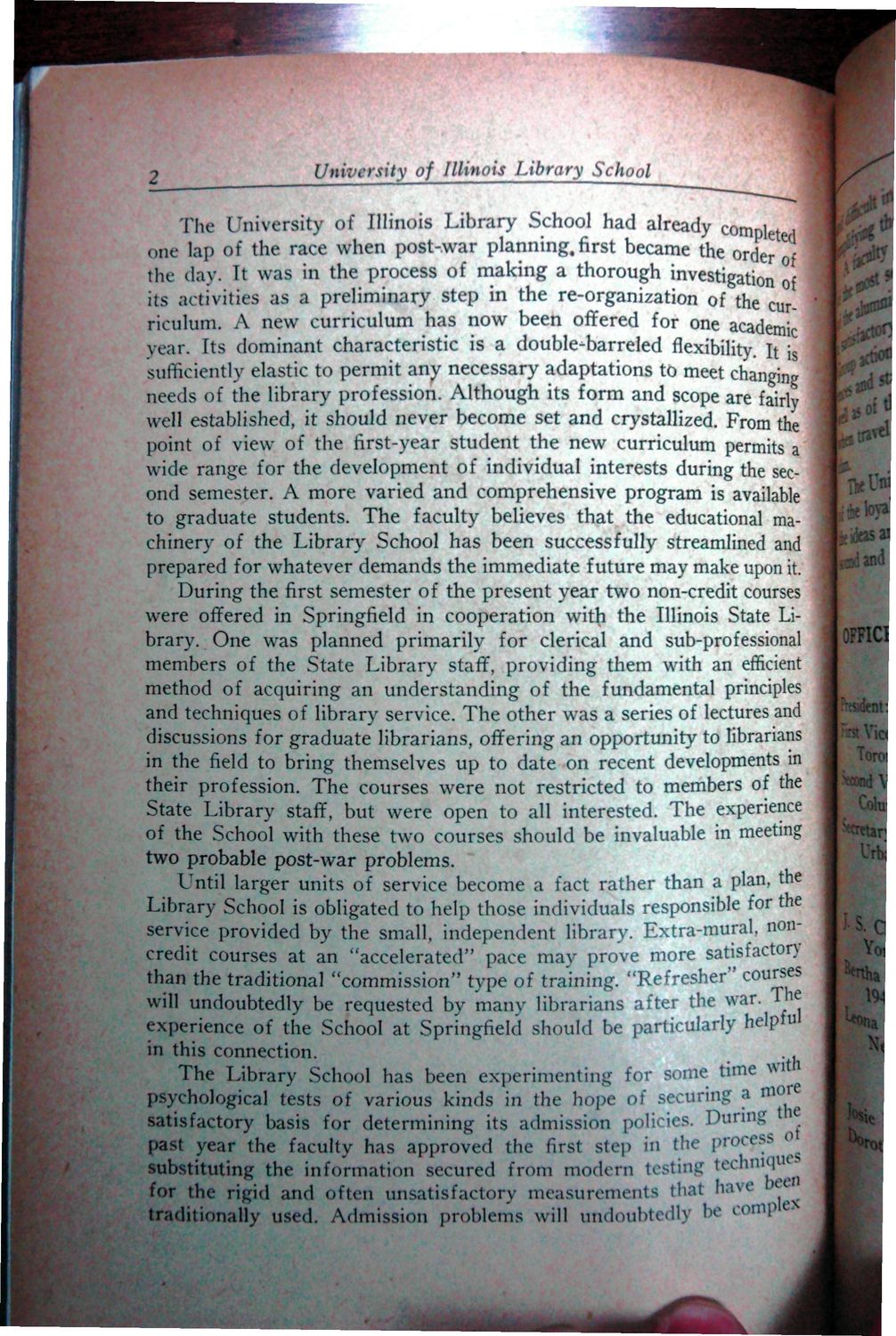| |
| |
Caption: UI Library School Alumni Newsletter - 36
This is a reduced-resolution page image for fast online browsing.

EXTRACTED TEXT FROM PAGE:
2 University of Illinois Library School The University of Illinois Library School had already complete one lap of the race when post-war planning,first became the order ^ the day. It was in the process of making a thorough investigation of its activities as a preliminary step in the re-organization of the curriculum. A new curriculum has now been offered for one academic year. Its dominant characteristic is a double-barreled flexibility. It is sufficiently elastic to permit any necessary adaptations to meet changing needs of the library profession. Although its form and scope are fairly well established, it should never become set and crystallized. From the point of view of the first-year student the new curriculum permits a wide range for the development of individual interests during the second semester. A more varied and comprehensive program is available to graduate students. The faculty believes that the educational machinery of the Library School has been successfully streamlined and prepared for whatever demands the immediate future may make upon it. During the first semester of the present year two non-credit courses were offered in Springfield in cooperation with the Illinois State Library. One was planned primarily for clerical and sub-professional members of the State Library staff, providing them with an efficient method of acquiring an understanding of the fundamental principles and techniques of library service. The other was a series of lectures and discussions for graduate librarians, offering an opportunity to librarians in the field to bring themselves up to date on recent developments in their profession. The courses were not restricted to members of the State Library staff, but were open to all interested. The experience of the School with these two courses should be invaluable in meeting two probable post-war problems. Until larger units of service become a fact rather than a plan, the Library School is obligated to help those individuals responsible for the service provided by the small, independent library. Extra-mural, noncredit courses at an "accelerated" pace may prove more satisfactory than the traditional "commission" type of training. "Refresher" courses will undoubtedly be requested by many librarians after the war. The experience of the School at Springfield should be particularly helptu in this connection. ith The Library School has been experimenting for some time wi psychological tests of various kinds in the hope of securing a more satisfactory basis for determining its admission policies. During past year the faculty has approved the first step in the process o^ substituting the information secured from modern testing technique for the rigid and often unsatisfactory measurements that have > traditionally used. Admission problems will undoubtedly be comp
| |